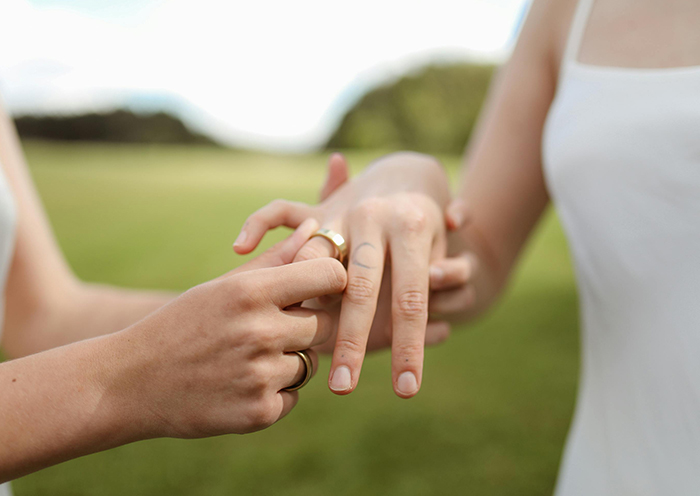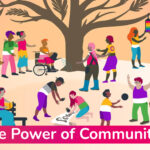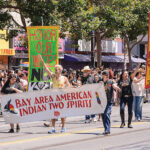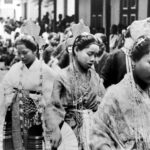A Historical Betrayal – LGB/TQ+
In recent years, there has been a growing divide within parts of the UK’s LGBTQ+ community, with some LGB individuals and groups distancing themselves from trans people and causes. This shift, often underpinned by the rhetoric of “protecting LGB rights”, and trying to emphasise that “LGB struggles are nothing like TQI+” struggles, is not only deeply troubling but also historically inaccurate.
The notion that the rights of lesbian, gay, and bisexual people can or should be achieved separately from those of trans individuals contradicts decades of shared struggle, mutual support, and collective activism. Our causes, while different from one another, are also inextricably linked by not just how they are seen by people who are opposed to us all having rights at all, but by the very similarities in the struggles themselves. These are things like violence, exclusion from friends and family, bigotry, and hate based crime, like murder. We also struggle comparatively as a group of communities with mental health, and suicide.
These similarities, and shared battles, have defined the LGBTQ+ movement in the UK, and powered it along. Sadly, those who now seek an air of ‘respectability’, (before the rest of their LGBTQI+ siblings have also found their feet), tend to throw the rest of us to the wolves.
The history of LGBTQ+ activism in Britain has always included trans people, even if their contributions were not always widely recognised or understood. In the mid-twentieth century, trans individuals were already involved in shaping the legal landscape. One of the earliest examples is the case of Sir Ewan Forbes in the 1960s, whose battle to be legally recognised as male had implications for inheritance rights, and later informed debates around gender recognition and marriage.
Similarly, April Ashley, one of the first British people to undergo gender reassignment surgery, was thrust into legal and media scrutiny after her marriage was annulled on the basis of her being assigned male at birth. These cases did not take place in isolation from the rest of the LGBTQ+ movement; rather, they were part of the broader challenge to societal norms about sex, gender, and sexuality.
As activism progressed through the late 20th century, it became clear to many campaigners that solidarity across different identities was not only principled, but strategic. In the fight for the repeal of Section 28, for example, gay and trans individuals marched side by side. While trans rights were not the focus of that particular campaign, the activists involved often expressed a belief that the dismantling of homophobic legislation would create a political and social environment more conducive to trans equality in the future.
This idea – that rights gained by one part of the community would pave the way for others – was a recurring sentiment in LGBTQ+ advocacy. This was a sentiment that was regularly heard being uttered by many LGB voices, especially in the run-up to events like the legal recognition of same-sex marriage in the UK, for instance. It was widely stated by LGB people at the time, and widely understood (if apprehensively), by trans and gender diverse people, that the passage of such important legislation, affecting members of our communities positively, would pave the way for future rights for the rest of us. There was a widely held understanding that the enemy was the same, and that rights would be won incrementally.
This sense of mutual responsibility was reflected institutionally in organisations like Stonewall UK. Although Stonewall did not originally campaign on trans issues when it was founded in 1989, it operated with the knowledge that trans people were present in the community and often among its members. In 2015, following years of criticism and reflection, Stonewall officially began to advocate for trans equality*. The organisation acknowledged its earlier shortcomings and committed to amplifying the voices of trans people, and supporting their fight for legal and social recognition. This marked a significant moment in British LGBTQ+ history: a leading institution taking responsibility for historical exclusion and making a public promise to be part of a unified movement.
In light of this, the emergence of groups such as the LGB Alliance in 2019 presents a troubling departure from this shared history. While the group claims to advocate for the rights of lesbian, gay and bisexual people, it does so by opposing what it describes as “gender ideology”, and actively campaigns against trans rights, including reforms to the Gender Recognition Act. Its narrative suggests that trans inclusion somehow undermines or threatens the rights of LGB individuals. This is not only a false dichotomy, but a betrayal of the legacy upon which LGB rights in the UK were built. It disregards the fact that the visibility, and acceptance of LGB people, were themselves once seen as “threats” to traditional social values, using the very same arguments now wielded against trans people.
Moreover, many of the rights LGB individuals enjoy today, like anti-discrimination protections, recognition of relationships, and broader social acceptance, were won through coalitions that included trans people. The idea that the next generation of progress should exclude us, is antithetical to the movement’s core principles. It also ignores how oppression functions: homophobia, biphobia and transphobia, all stem from the same rigid enforcement of gender roles and sexuality ‘norms’ (see our history of The Enlightenment). They are not separate fights; they are aspects of the very same struggle.
This reality has not been lost on many within the LGBTQ+ community. Recent responses to political and legal developments affecting trans people have demonstrated strong solidarity. Major Pride events in the UK have chosen to exclude political parties that fail to support trans rights, sending a clear message that transphobia has no place in the LGBTQ+ community. Activists, and allies, have spoken out against media narratives that attempt to drive wedges between groups, reaffirming the principle that none of us are free, until all of us are.
To forget, or rewrite, the history of LGBTQ+ activism in Britain is not just doing a disservice to the trans people who have always been part of the struggle, it is also a strategic and moral error that weakens the entire movement. The rights that lesbian, gay and bisexual people have today were achieved not in isolation, but through solidarity. If we are to remain true to the values that delivered progress in the past, we must continue to extend that solidarity, especially to those who are now most under attack.
*Wipe Out Transphobia were present at the first consultation by Stonewall UK, on including trans people in their campaigning. We, among others, had been very vocal about full inclusion, as our battles were so similar.
Image by Polina Tankilevitch (via Pexels)












